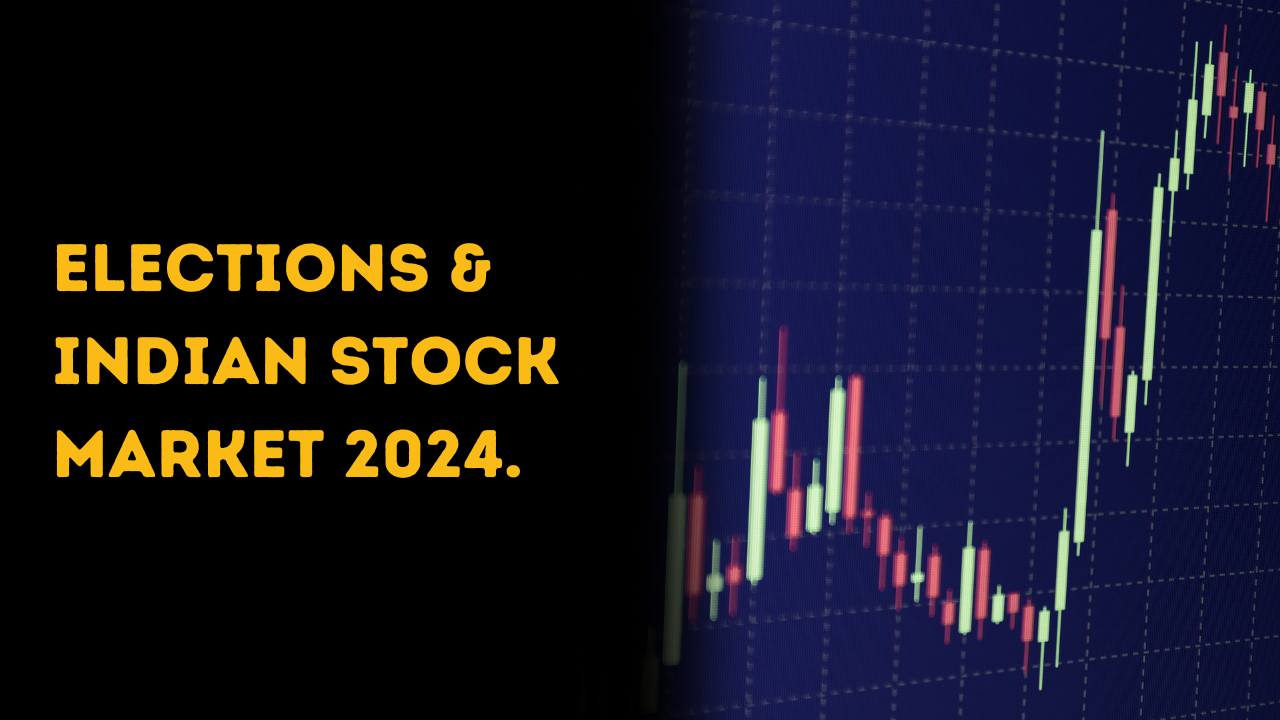Elections & Indian Stock Market 2024.
13 Jun 2024 4 mins Stock Markets

Stock markets, including the Nifty 50 and Bank Nifty on the NSE India, are highly sensitive to various domestic and global events, with elections being a particularly crucial factor. Elections not only shape a nation's political landscape but also significantly influence its economic and social dynamics. In India, the impact of elections on stock market behavior is profound, influencing investor sentiment and market volatility. This article delves into how elections affect the Indian stock market and explores the mechanisms underlying these effects.
Introduction to Stock Markets?
Stock markets serve as platforms where publicly listed companies' stocks are bought and sold by investors. Through these exchanges, companies raise capital for expansion and operations. Market dynamics, driven by the forces of supply and demand, determine stock prices.
Operations of Stock Market
When companies seek public funding, they can list their shares via an Initial Public Offering (IPO) on a stock exchange. Post-listing, these shares are traded among investors, with prices fluctuating based on market conditions: higher demand typically raises prices, while increased supply may lead to declines.
Impact on Commodity Markets
Elections introduce economic uncertainty, policy changes, and shifts in investor sentiment, significantly affecting commodity markets. Participants monitor election developments closely, adjusting strategies to manage risks and seize opportunities.
Determinants of Stock Prices
Stock prices are influenced by market sentiment, economic indicators, and news events. Positive developments, such as company news or favorable economic data, can boost investor confidence and drive up stock prices, whereas negative news can have the opposite effect.
The Influence of Elections on Stock Markets
Elections inject substantial uncertainty into stock markets, often increasing volatility. Election outcomes signal political stability or instability, profoundly impacting investor confidence. Historical data illustrates notable market reactions to Indian elections, such as downturns when the BJP lost power in 2004 and market rises following the Congress party's 2009 victory. The anticipation of Narendra Modi's leadership in 2014 similarly triggered pre-election market surges.
Key Factors Linking Elections and Stock Market Movements
- Election Manifestos: Proposed policies, like economic reforms or tax cuts, outlined in political party manifestos can raise investor confidence and elevate stock prices.
- Government Ideology: Parties with clear pro-business agendas tend to garner favor from the market, potentially leading to positive sentiment and higher stock values.
- Exit Polls: Preliminary election result indications from exit polls can spark market rallies, particularly if they favor a party with robust economic policies.
- Expected Economic Policies: Market reactions tend to be positive if the anticipated winning party plans growth-oriented economic strategies.
- Sectoral Impact: Specific sectors may experience significant shifts based on new government policies; for instance, infrastructure and real estate sectors might thrive under pro-infrastructure agendas.
- Leadership Perception: Market responses also hinge on the perceived competence and popularity of political leaders, which can attract foreign investments and bolster stock markets.
Historical Market Reactions
The 2019 general elections in India serve as a case study where despite the BJP winning more seats than in 2014, the market saw a 6% decline over three months post-election. This underscores the complexity of market reactions influenced by pre-election expectations and valuations.
Conclusion
Elections wield substantial influence over stock markets, intertwining with factors like manifestos, government ideologies, exit polls, and leadership perceptions. While market behavior during elections remains unpredictable, understanding these dynamics offers insights for investors navigating volatile periods. Staying abreast of political developments and economic policies remains pivotal for making informed investment decisions in Indian stock markets, including the Nifty 50 and Bank Nifty on the NSE India.
Get a Personal Loan that fits your needs. Apply for loans from Rs 1000 to Rs 15 Lakhs with competitive rates.
Find the Perfect Credit Card for your spending habits. Explore top credit cards and maximize your rewards.
Author - Abhishek Sonawane
Abhishek Sonawane, an MBA graduate from the prestigious Indian Institute of Management Visakhapatnam(IIMV), brings over ten years of experience in the finance domain. His extensive background includes various roles in financial management and strategy, providing him with a comprehensive understanding of the financial landscape. Abhishek’s expertise and dedication to financial education make him an authoritative voice in personal finance, helping readers make informed financial decisions.